A living Part of the Past: the Piraha
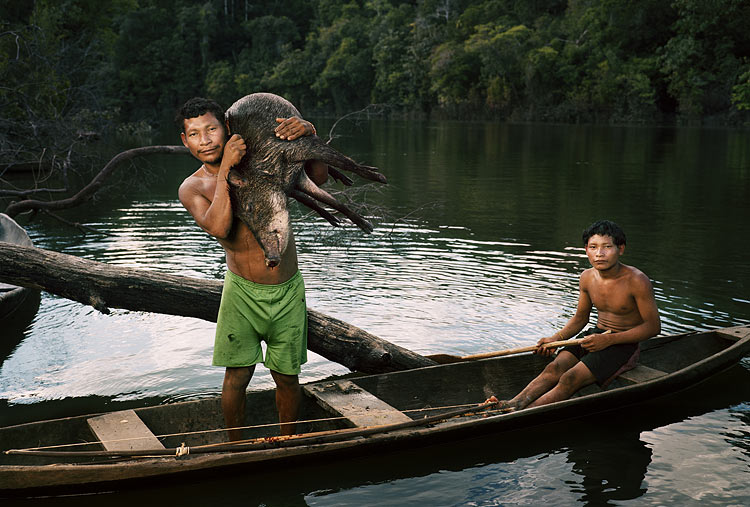
Deep within the Amazon, far away from outside influence, lies a small population of people who are referred to as the Piraha. Daniel Everett, a master linguist and the first and possibly only outsider that ever became fluent in their language, referred to them as recalcitrant, seeing as they refused to accept outside influence and foreign customs. Everett struggled to understand the language because he attempted to isolate it from the rest of their culture such as their hunting and gathering, which made it cumbersome to make full sense of what it all meant since their language reached beyond just words. They were a people that survived much like our ancestors. They have to hunt and gather their food. They make everything without the convenience of modern machinery or electricity. They had to become exceptionally aware of their surrounding just for the sake of averting certain death. One exceptionally interesting thing about the Piraha though, was that their language was much different than any other Everett had ever seen before. They had no words that described color, nor did they have any names for numbers. They didn't have any word describing the distant past or the distant future. When they talked, their verbs always included additional information that explained how they knew what they just said was true. They would never say that somebody did anything without including that they saw it themselves, a friend of theirs saw it, or that they deduced it from knowledge they pieced together. They don't have any material attachment because they can always create whatever they need, when they need it, meaning that there isn't a reason to save for a later time. As Everett put it, they lived by the idea of "immediacy of experience." This means that they only cared about what was happening right now, or had happened really recently.
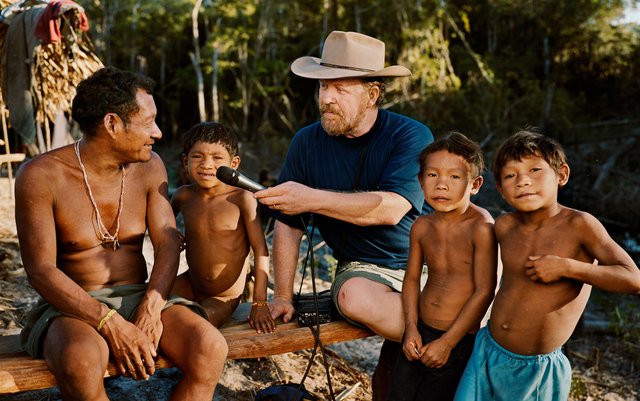
The Piraha are a society that lives in the moment and because of this, are always aware of what’s going on at any given time. They live in the eternal now. They don't have folklore or a creation theory that explains how life came to be. Instead, they accept life as it is and they are completely content with this outlook on life. Although the Piraha have a spoken language, they don't entirely rely on it since they only use it to address what’s happening. They can't get caught up in the past. They don't worry about what is going to happen to them in the future. This frees them from the bind that a lot of us experience with language and as a result, they still have that connection to the primal intelligence that our ancestors had. They effortlessly pass through the forest, undetected. They can sense when it's going to rain, well before it happens. They are intuitively aware of the medicinal effects of all of the surrounding plants. They can predict with high accuracy where an animal will travel next, so that it can be hunted later. They can even, somehow know when a plane is going to fly over them hours before it does. The Piraha still possess an ability that we all have deeply rooted in us, but they have refined it since they aren't fettered by social constructs and ideas about the abstract. They are one with nature, much like the navigators of Oceania, who are yet another example of a society that sees the world beyond the obvious.
Living in a Water World
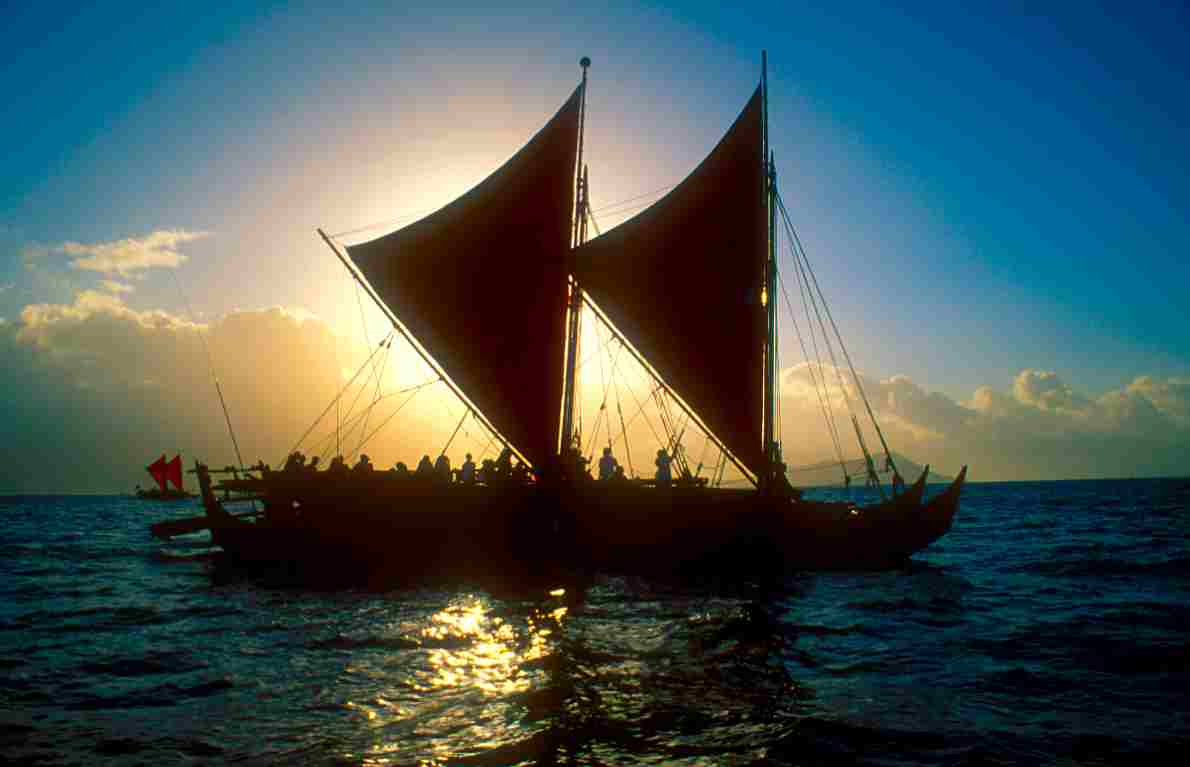
Oceania is a region in the Pacific Ocean that has thousands upon thousands of various islands, referred by many as, "The Liquid Continent." It is a massive stretch with an incredible diversity of inhabitants, human and animals alike. In a sub region referred to as Micronesia, more specifically, The Yap Islands, lays the skill sets of incredible navigators; individuals who are capable of traveling great distances between islands, without any form of traditional tools or maps. Although modernized, unlike the Piraha, several members of Micronesia retain the intuitive connection with nature, as their ancestors had. They understand the principles of their surroundings so well that they still baffle many westerners to this day. Stars in the sky, the look of the clouds, the direction of the wind, and the feeling of the waves, were all elements that contained a vast amount of knowledge that they were able to unlock, that to us, would appear hidden. They could travel for days by canoe from one island to the next by what looks like just occasionally glancing at the sky. Considering how far they had to travel and how just one mishap in direction could be potentially fatal, it is remarkable that they were ever able to accomplish this. They are in the truest sense, “wayfinders.”
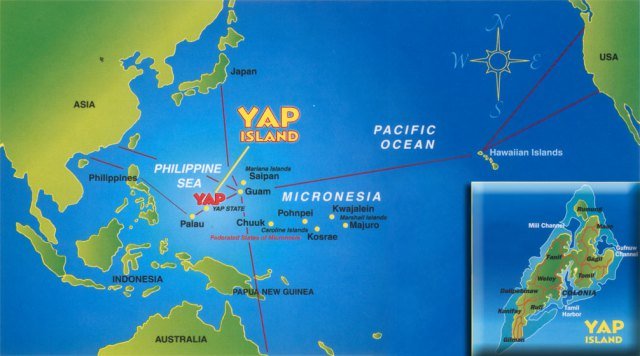
The world around us is filled with information that we would likely dismiss, unless we had the idea to look for it. Each flower, every insect, and all other living creatures that surrounds us, tell a story that goes unheard, because we tune them out. Every rock, cloud, and wave, gives clues as to why they are the way they are, and what might have caused them to act in the way they did. In our busy lives, we often don't have enough time to just be and observe the world around us. If we did, perhaps, we would start to notice things in greater detail. We would starts seeing patterns and connections that otherwise we would have misseed because of how non-intuitive they appear. The people of the Yap Island (also known as the Yapese) however, became very conscious of the ocean. They became so familiar with it in fact, that they could look into the clouds and see a subtle reflection which indicated whether there was land or water beneath them. They identified 14 constellations in the night sky that translated into 32 different directions they could use for guidance. They could feel the difference in the waves which told them how far away they were from land. They could identify, by the taste of the water, if they were getting close to an island. They could identify several different kinds of animals in the air or sea and know where they were headed. These abilities of perception, were developed from being able to understand their world through a lens of intuition. They understood something deeper than language could have given them, alone. Fortunately, unlike many other forgotten talents of ancient societies, The Yapese kept their “razor sharp” wayfinding skills up to this day.
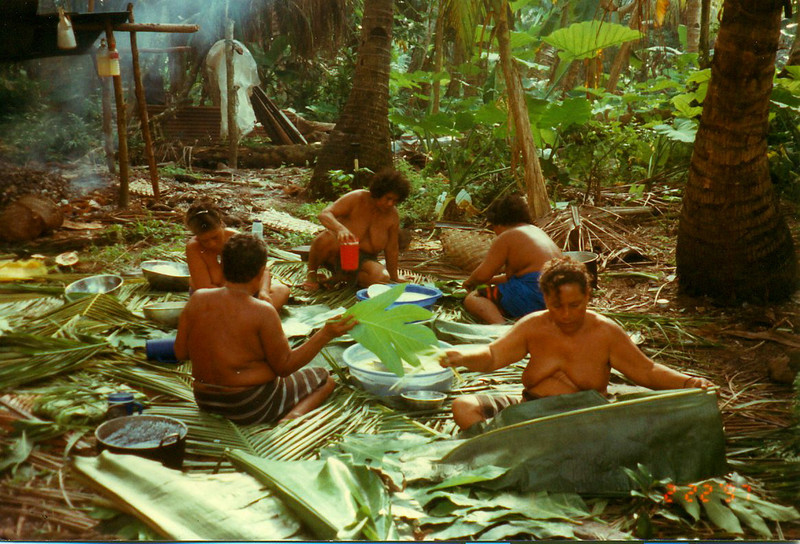
Before the human mind conceived the idea of spoken language, we were at the mercy of our senses for survival, so we became increasingly more attuned with our environment. Over time, we became better at processing what we saw and could build further upon it by creating tools that helped us gain leverage over nature. No longer would we have to fight a bear with sticks and stones once we discovered that a spear could pierce his flesh. No longer would we have to risk getting ill from eating its meat once we discovered how to harness the cooking power of fire. Unfortunately, though, we reached a tipping point where leverage became dependence, and personal development became optional. We gained more skill in technology, but started to atrophy in the sense of our attunement with observation. We grew more intellectual, but not necessarily wiser.
Luckily for us, whether it comes from coincidence or from study, little bits of insight, may occasionally glimmer in our souls, allowing us to temporarily see through the eyes of our ancestors, as we begin to process things as they could be, instead of what they were labeled. Most of all, the revelations that lead to the development of our current society, in fact, were the workings of such a glimmer in the eyes of great thinkers, which came to them, in some of the most particular ways. Take one of the earliest examples of a great mind from before the 1st century, Archimedes. He discovered the law of buoyancy, which we still use to this day, all thanks to him taking a bath. You may have heard the story before, but allow me summarize it.
Deception in Syracuse

In the first century B.C, King Hiero, ruler of Syracuse, had a dilemma. He wanted to fashion himself a crown made of gold, but when a goldsmith whom he had given his gold to, returned to him his new head wear, he grew suspicious. The king suspected that it was created part in silver, and the remaining gold, pocketed by the charlatan. The king had no way to tell whether or not the crown was genuine or if it was melted alongside inferior metals and then polished. Suspecting that the goldsmith may have been a mountebank salesman, he hired the Greek mathematician and engineer, Archimedes to determine the crown's authenticity. Archimedes worked incessantly to tailor a method which could distinguish whether or not the crown had been tampered with, but alas, he was limited on what he could do. The king insisted that Archimedes not cause any damage on his crown, meaning that taking a sample for chemical tests or burning it was out of the question. At the point where Archimedes felt he was stumped, was the point which his subconscious mind took over, as his conscious mind relaxed.
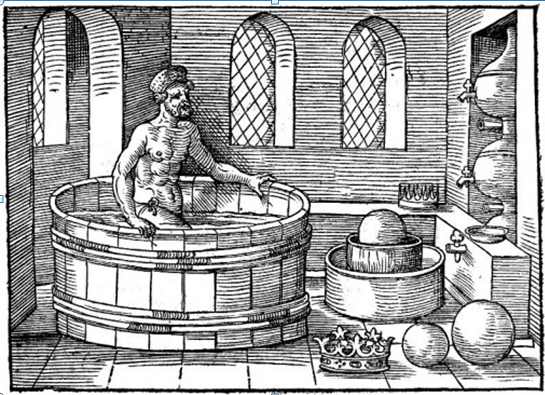
Perplexed and feeling lost, Archimedes grew tired and needed rest, so he drew himself a bath to escape from his problem for a few minutes. Then suddenly, when he got into the bath tub, a flash of insight overcame him. When Archimedes entered the bathtub, the water inside, which his body displaced, came out. In almost an instant, Archimedes jumped up and stated the all so famous phrase "Eureka, I've got it!" and hurried to the king with the solution. In a moment of clarity when his thinking brain took a rest and his creative brain took over, Archimedes came to an answer that he wasn't able to deduce from logical thought process alone. When the insight came to him, it was almost so obvious to him, he couldn't imagine how he hadn't thought of it before. Buoyancy! That was how he could test whether the crown was entirely gold or mixed with silver. As we know nowadays, according to Archimedes principle, the upward buoyant force that is exerted on a body immersed in a fluid, whether fully or partially submerged, is equal to the weight of the fluid that the body displaces and it acts in the upward direction at the center of mass of the displaced fluid. The crown may have weighed the same as the amount of gold the king gave the goldsmith, but if it weren't entirely gold, it wouldn't have the same mass! Ergo, it would differ when compared to the equivalent amount in gold coins. Sure enough, the goldsmith was a charlatan! Although, I'm not entirely certain what happened after that, I'd like to believe that he got beheaded or something like that because… well, why not?

Thanks for reading and take care!
You got a 18.18% upvote from @upmewhale courtesy of @thegreatlife! Earn 90% daily earning payout by delegating SP to @upmewhale.
Downvoting a post can decrease pending rewards and make it less visible. Common reasons:
Submit
You got a 1.93% upvote from @postpromoter courtesy of @thegreatlife!
Want to promote your posts too? Check out the Steem Bot Tracker website for more info. If you would like to support the development of @postpromoter and the bot tracker please vote for @yabapmatt for witness!
Downvoting a post can decrease pending rewards and make it less visible. Common reasons:
Submit